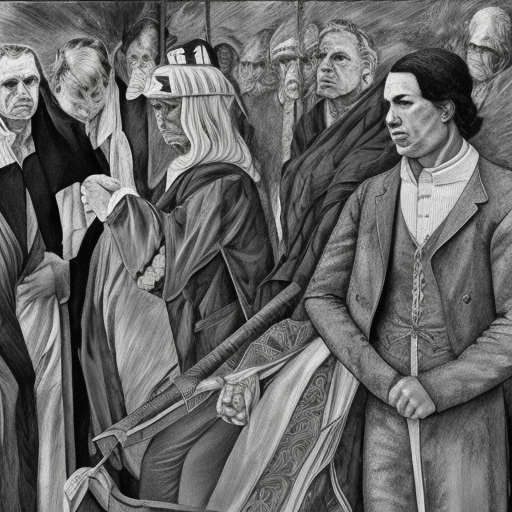Inherit the Wind (1960): A Battle of Science and Religion in the Courtroom
Main Cast and Crew:
- Director: Stanley Kramer
- Writer(s): Jerome Lawrence, Robert E. Lee
- Key Actors: Spencer Tracy as Henry Drummond, Fredric March as Matthew Harrison Brady, Gene Kelly as E.K. Hornbeck, Dick York as Bertram Cates, Donna Anderson as Rachel Brown
- Music Director: Ernest Gold
- Director of Photography: Ernest Laszlo
- Producers: Stanley Kramer
Plot:
Inherit the Wind is a fictionalized account of the 1925 Scopes “Monkey” Trial, where a young teacher named Bertram Cates is put on trial for teaching Darwin’s theory of evolution in a small town called Hillsboro. The trial becomes a national spectacle, attracting the attention of two renowned lawyers: Henry Drummond, a brilliant defense attorney, and Matthew Harrison Brady, a famous orator and staunch believer in Biblical literalism.
As the trial unfolds, the town becomes divided between those who support Cates and his right to teach evolution, and those who believe it goes against their religious beliefs. The courtroom becomes a battleground for the clash between science and religion, as Drummond and Brady engage in a heated debate over the fundamental questions of faith and reason.
Amidst the trial, personal relationships are strained. Rachel Brown, the daughter of the town’s minister and Cates’ girlfriend, finds herself torn between her love for Cates and her loyalty to her father and their religious community. E.K. Hornbeck, a cynical newspaper reporter, adds fuel to the fire with his scathing coverage of the trial, highlighting the absurdity of the situation.
As the trial reaches its climax, Drummond exposes the narrow-mindedness and hypocrisy of the prosecution, while Brady struggles to defend his beliefs in the face of mounting evidence and logical arguments. Ultimately, the trial becomes a battle not just for Cates’ freedom, but for the freedom of thought and the right to question established beliefs.
Themes and Motifs:
Inherit the Wind explores the tension between science and religion, highlighting the dangers of dogmatism and the importance of intellectual freedom. The film raises questions about the role of education in society and the limits of religious authority. It also delves into the complexities of personal relationships and the sacrifices individuals make for their beliefs.
Reception and Legacy:
Upon its release, Inherit the Wind received critical acclaim for its powerful performances and thought-provoking themes. Spencer Tracy’s portrayal of Henry Drummond was particularly praised, earning him an Academy Award nomination for Best Actor. The film was also nominated for Best Adapted Screenplay.
Inherit the Wind has since become a classic in American cinema, regularly studied in schools and universities for its exploration of the First Amendment and the conflict between science and religion. Its enduring relevance is a testament to its timeless message of intellectual freedom and the importance of open-mindedness.
Recommendation:
Inherit the Wind is a must-watch for anyone interested in thought-provoking courtroom dramas and the clash between science and religion. With its stellar performances and compelling script, the film offers a gripping exploration of the battle between reason and faith. It serves as a reminder of the importance of critical thinking and the dangers of blind adherence to dogma.
Memorable Quote:
“I say that you cannot administer a wicked law impartially. You can only destroy, you can only punish. And I warn you, that a wicked law, like cholera, destroys everyone it touches. Its upholders as well as its defiers.” – Henry Drummond












